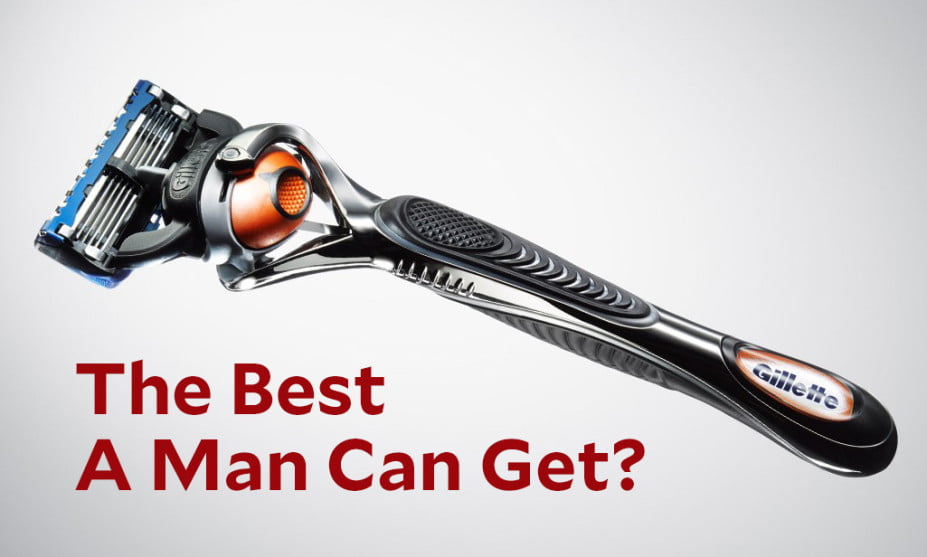This week the multi-billion dollar razor company, Gillette came out with its commercial ‘We Believe: The Best Men Can Be’ and it has wreaked havoc for many. The commercial talks about the #MeToo movement and how conforming to stereotypical manliness accompanies bullying, sexual harassment and toxic masculinity.
It poses its viewer with the question “Is this the best a man can get?” challenging its own tagline ‘The Best A Man Can Get’. The commercial narrates “We believe in the best in men…to say the right thing, to act the right way” with a clip of Terry Crews stating “Men need to hold other men accountable.” Pankaj Bhalla, Gillette’s North America brand director stated, “The ad is not about toxic masculinity. It is about men taking more action every day to set the best example for the next generation. This was intended to simply say that the enemy for all of us is inaction.”
Also read: 11 Ways How Toxic Masculinity Hurts Men
Why are people angry?
The commercial has sparked a huge controversy. It has got 15 million views in the last four days on YouTube, with over 770 thousand dislikes as opposed to only 320 thousand likes. Some people are very upset and are bashing the video for Gillette’s portrayal of men as bullies and sexual harassers. They feel that it ’emasculates men’ and Gillette’s message to men is to stop being men. The widely-known misogynist, Piers Morgan has termed it as a “global assault on masculinity”.
People are calling the commercial “the worst marketing move” and are concerned that the commercial is accusatory in nature and it attacks all men of being aggressive, irrational, bullies and sexual predators – they are generalising and stereotyping men. They are also raising concerns as to how the ad does not discuss ‘toxic femininity’ and only targets men.
What have they got wrong?
People are once again shouting #NotAllMen during a discussion on men’s behavior and how it affects all people. The subject is not who is and is not toxic masculine; the subject is toxic masculinity. #NotAllMen claim only derails the discussion without adding to it. If a man does not identify with said behavior, the discussion should not offend him.
Some people are offended by the term toxic masculinity itself. They feel that the term associates masculinity with toxicity. However, masculinity in itself is not toxic. Toxic masculinity only describes a certain kind of masculinity and refers to those stereotypical notions of gender attached to men like aggression, being in control, not being vulnerable or expressive, among others.
Toxic masculinity is a concept worth bringing into mainstream discussion as depression and other health hazards are often a consequence of it. Recently, the American Psychology Association released a study in relation to it, highlighting both mental and physical health challenges posed to men and boys who conform to traditional stereotypes of masculinity. They face the risks of suicide, substance abuse, cardiovascular issues, violence and early mortality.
Some people have also raised concerns regarding lack of discussion on ‘toxic femininity’. But ‘toxic femininity’ does not endanger or marginalise men the same way toxic masculinity poses a threat for both men and women. Moreover, the central topic of the commercial is toxic masculinity, raising a question about the lack of another topic only derails the central conversation.
In 2014 Vogue India came out with a video promoting its campaign #StartWithTheBoys starring Madhuri Dixit. The video shows how cultivating toxic masculinity among young boys and telling them ‘boys don’t cry’, they tend to suppress their emotions and lash them out through violence and aggression, the target of which mostly become women. Their message was against domestic violence subjected to women. This video also received some backlash from the Indian public, some stating that Vogue was perpetuating bias against men, or that they are falsely victimising women only.
Also read: Boyhood And The Dangers Of Toxic Masculinity
If Gillette’s aim was to get trending, then it is already successful in its venture. However ‘woke’ advertising does not always ring a bell with the majority, like the Nike’s Equality campaign featuring Colin Kaepernick. Breaking down the Gillette’s commercial, it is not as problematic as people say and is definitely not a ‘global assault on masculinity’. But this kind of backlash makes me think of how it reflects on other corporate giants as to the advertising strategies they adopt in future. If the majority does not approve of this kind of advertising, will they revert to their old misogynistic ways?
Reference
1. GQ
2. CNN Business
3. CNBC Make It
4. Business Insider India
5. Marketing Week
Featured image credits: Mother Jones
About the author(s)
Anshika Kesarwani is a 20-yr old student who is still trying to figure out life. She loves to sing and dance but has somehow ended up in a law school. She is obsessed with dogs and has a newfound love for female friendships.




